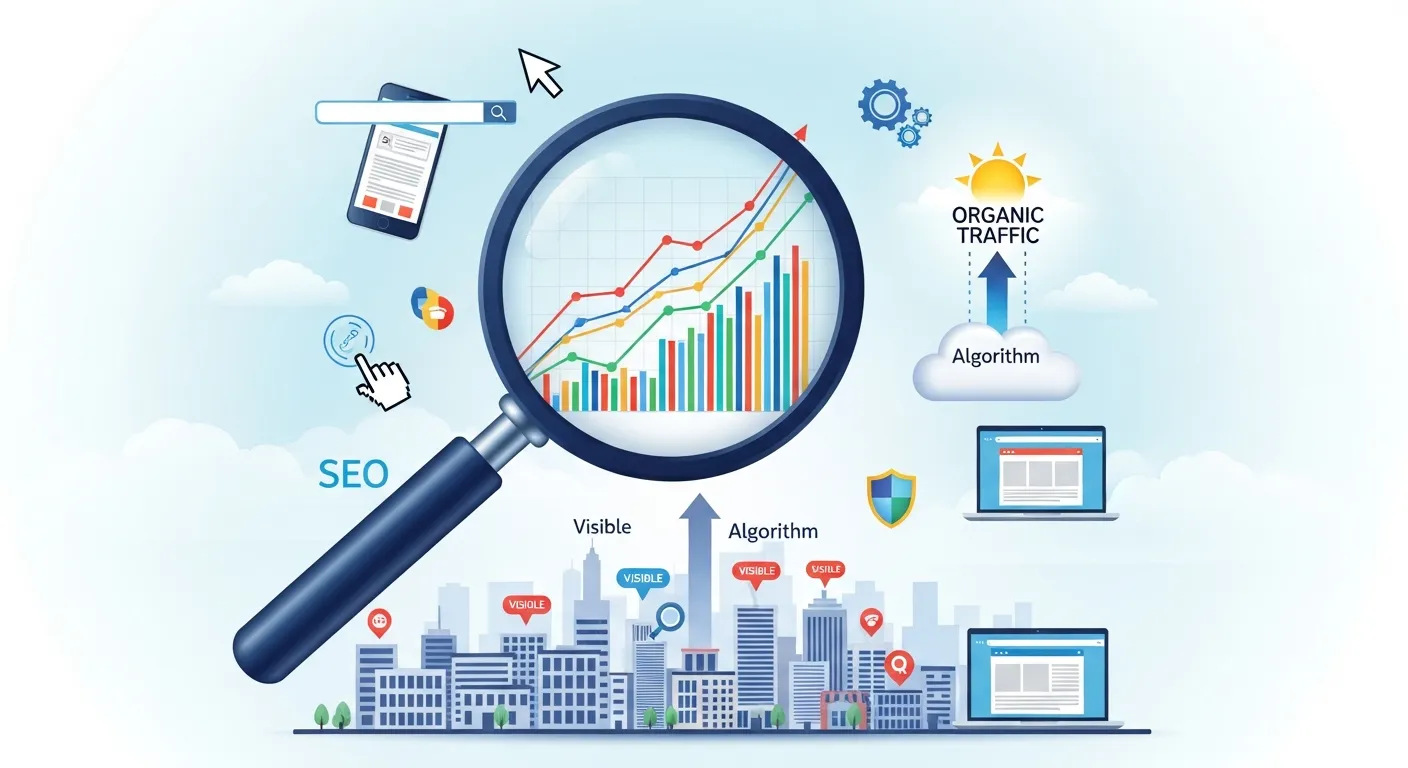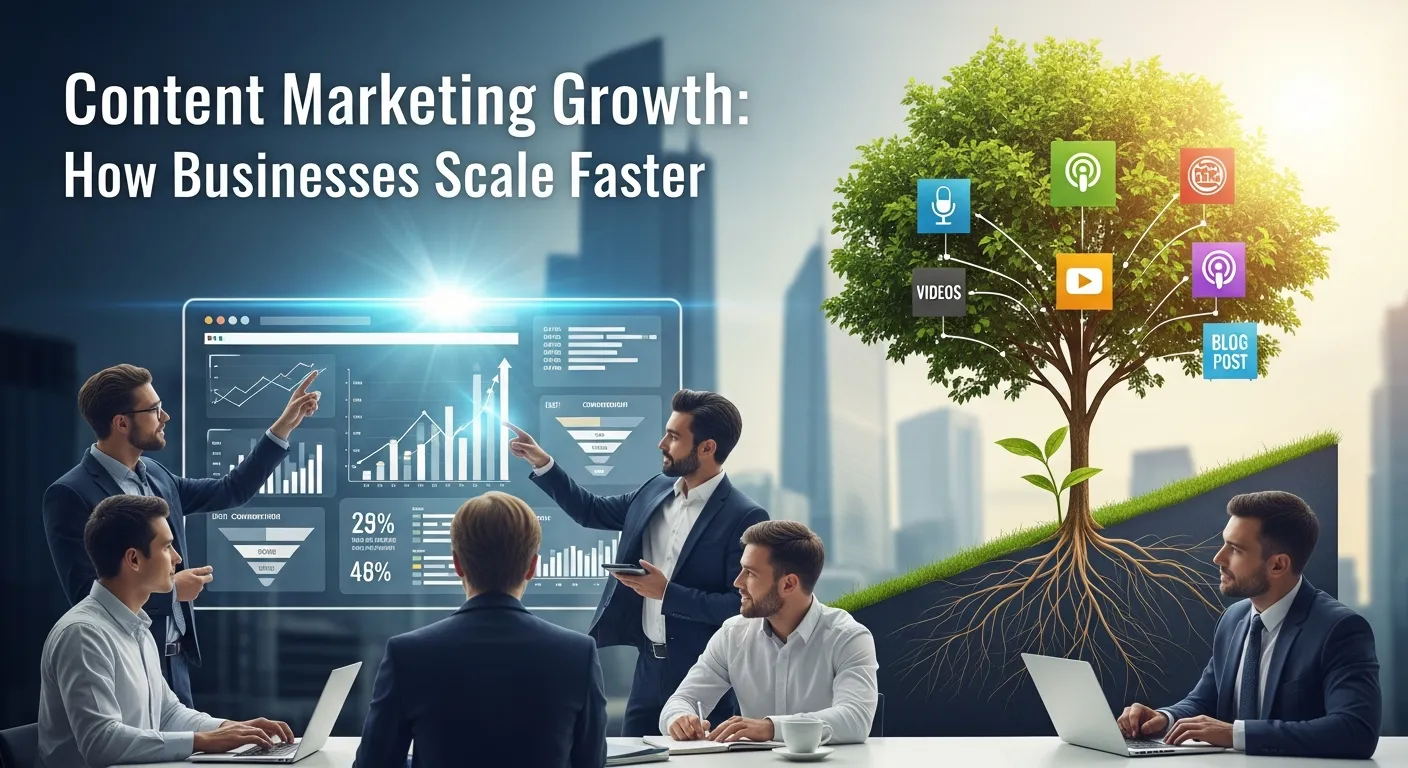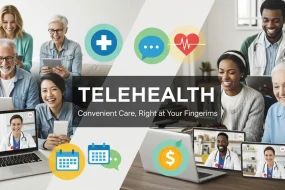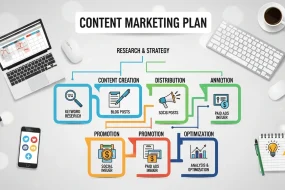
Content marketing has evolved with a good marketing strategy in an essential business strategy. Industry companies know that traditional advertising methods lose efficiency, while material marketing continues to produce extraordinary results.
But why has material marketing become so important for modern businesses? Answer: Answer: Change of consumer behavior, technology development and how people find the basic change in search and research products and services.
This wide guide material will detect the important importance of marketing, check the data behind the efficiency and provide you with actionable insights to help you understand why your business needs a strong material market strategy.
The Fundamental Shift in Consumer Behavior
Modern consumers have fundamentally changed how they interact with brands and make purchasing decisions. Gone are the days when people relied solely on traditional advertising to learn about products and services.
Research-driven purchasing decisions have become the norm. Studies show that 70% of consumers prefer learning about products through content rather than traditional advertising. People actively seek out information, read reviews, and compare options before making purchases.
Ad-blocking and banner blindness have made traditional advertising less effective. Over 615 million devices worldwide use ad-blocking software, and consumers have developed an unconscious ability to ignore banner ads and promotional content.
Trust in peer recommendations has increased dramatically. Consumers trust recommendations from friends, family, and even strangers online more than they trust branded advertising messages.
This shift means businesses must adapt their marketing strategies to meet consumers where they are and provide value before expecting anything in return.
Building Trust and Credibility Through Value
Content marketing excels at building trust because it focuses on providing value rather than pushing sales messages. When businesses consistently share helpful, informative content, they position themselves as trusted advisors rather than just vendors.
Expertise demonstration happens naturally through content marketing. By sharing knowledge, insights, and solutions to common problems, businesses showcase their expertise and industry knowledge. This demonstration builds confidence in potential customers.
Transparency and authenticity become possible through content marketing. Businesses can share behind-the-scenes content, discuss industry challenges, and provide honest insights that humanize their brand.
Long-term relationship building occurs as audiences consume valuable content over time. Unlike one-time advertising impressions, content marketing creates ongoing touchpoints that strengthen relationships gradually.
Trust directly content marketing with business success. Companies with high trust scores outperform their peers by 88% in terms of revenue growth, according to research from the Trust Edge Institute.
Cost-Effective Marketing with Long-Term Benefits

Content marketing offers exceptional return on investment compared to traditional marketing methods. While creating high-quality content requires upfront investment, the long-term benefits far outweigh the costs.
Lower cost per lead is one of content marketing’s most significant advantages. Content marketing generates three times more leads than traditional advertising while costing 62% less. This efficiency comes from content’s marketing ability work continuously rather than stopping when advertising budgets run out.
Compound returns occur as content continues delivering value over time. A well-optimized blog post can attract visitors, generate leads, and drive sales for months or years after publication. This contrasts sharply with paid advertising, which stops working the moment you stop paying.
Improved search engine visibility reduces reliance on paid advertising. Quality content that ranks well in search results provides a steady stream of organic traffic without ongoing advertising costs.
Asset creation means content marketing builds valuable business assets. Unlike advertising spend that disappears, content becomes a permanent part of your marketing arsenal that continues generating returns.
Enhanced Customer Journey and Experience
Content marketing excels at guiding potential customers through their entire buying journey, from initial awareness to post-purchase advocacy.
Awareness stage support helps potential customers understand their problems and available solutions. Educational content like blog posts, guides, and videos introduce your brand while providing genuine value.
Consideration stage guidance helps prospects evaluate different options and understand what makes a good solution. Comparison guides, case studies, and detailed product information help people make informed decisions.
Decision stage confidence comes from testimonials, demonstrations, and detailed information that addresses final concerns. This content removes barriers to purchase and builds confidence in your solution.
Post-purchase value continues through onboarding content, best practices, and ongoing education. This content improves customer satisfaction and increases the likelihood of repeat purchases and referrals.
Improved Search Engine Visibility and Organic Traffic

Search engines prioritize helpful, relevant content that serves user intent. Content marketing naturally aligns with search engine optimization goals by creating valuable resources that people actively seek.
Keyword targeting becomes natural when creating content that answers real questions and solves actual problems. Rather than forcing keywords into promotional content, content marketing allows for organic keyword integration.
Topic authority develops as businesses consistently create comprehensive content around their expertise areas. Search engines recognize this authority and reward it with higher rankings.
Backlink attraction occurs when other websites reference and link to valuable content. These backlinks signal to search engines that your content is trustworthy and valuable.
Local search benefits help businesses appear in location-based searches through locally relevant content. This is particularly valuable for service-based businesses and brick-and-mortar stores.
Organic search traffic has a 14.6% close rate, compared to just 1.7% for outbound leads from traditional advertising.
Competitive Advantage and Market Positioning
Content marketing helps businesses differentiate themselves in crowded markets by showcasing their unique perspective and expertise.
Thought leadership development positions businesses as industry experts and innovators. Companies that consistently share valuable insights become go-to resources for industry information.
Brand personality emerges through content marketing in ways that traditional advertising cannot match. The tone, topics, and approach businesses take with their content communicate their values and personality.
Customer education creates competitive advantages by helping customers understand complex topics or make better decisions. Educated customers are more likely to choose businesses that helped them learn.
Market gap identification becomes possible as businesses research content topics and discover underserved areas or frequently asked questions that competitors aren’t addressing.
Content Marketing Growth: How Businesses Scale Faster

Content marketing growth refers to the ability of businesses to expand their reach, visibility, leads, and revenue through consistent, strategic content creation. Unlike paid advertising, content marketing builds long-term momentum that compounds over time. Every blog post, video, email, or social media post adds value to your digital presence, strengthening brand authority and search visibility.
By continuously publishing valuable content, businesses attract qualified traffic, nurture relationships, and convert visitors into loyal customers. Over time, this creates predictable lead generation and scalable business growth. Companies that invest in long-term content marketing growth outperform competitors who rely only on short-term advertising campaigns.
Key Benefits of Content Marketing Growth:
- Builds long-term brand authority
- Drives consistent organic traffic
- Generates high-quality leads
- Increases customer trust and loyalty
- Improves ROI over time
Content Marketing Growth Impact Table:
| Marketing Factor | Without Content Marketing | With Content Marketing |
|---|---|---|
| Website Traffic | Low & inconsistent | High & sustainable |
| Lead Generation | Expensive | Cost-effective |
| Brand Authority | Weak | Strong |
| Customer Trust | Low | High |
| Long-term ROI | Limited | Strong |
Telehealth Content Marketing: A Modern Growth Strategy
Telehealth content marketing has become essential for healthcare providers seeking digital growth. As patients increasingly rely on online research to choose healthcare services, content marketing helps providers educate, build trust, and improve appointment bookings.
Through blogs, videos, patient guides, email campaigns, and social media education, telehealth providers can create awareness, answer patient questions, and reduce uncertainty. Content marketing enables healthcare brands to maintain regulatory compliance while offering clear, helpful, and trustworthy information that supports patient decision-making.
Key Advantages of Telehealth Content Marketing:
- Improves patient education
- Builds healthcare brand credibility
- Increases appointment bookings
- Enhances patient engagement
- Strengthens digital healthcare presence
Telehealth Content Marketing Tools & Impact:
| Content Type | Purpose | Business Benefit |
|---|---|---|
| Blog Content | Health education | Builds trust & SEO visibility |
| Email Campaigns | Patient communication | Higher appointment retention |
| Video Content | Explain procedures | Improves understanding |
| Social Media | Health awareness | Expands audience reach |
| Analytics Tools | Track performance | Optimized campaigns |
Measurable Results and Data-Driven Optimization
Content marketing provides extensive data about audience behavior, preferences, and engagement patterns that help businesses optimize their strategies continuously.
Engagement metrics reveal which topics, formats, and approaches resonate most with your audience. Time on page, social shares, and comments provide insights into content effectiveness.
Conversion tracking shows which content pieces drive the most valuable actions. This data helps businesses double down on successful content types and improve underperforming content.
Customer journey insights emerge from analyzing how people interact with different content pieces throughout their buying process. This information helps optimize the entire customer experience.
ROI measurement becomes possible through comprehensive tracking of content marketing activities and their business outcomes. This data justifies marketing investments and guides future strategy decisions.
Read our latest blog 15 Content Marketing Strategies That Actually Work
Social Media Amplification and Community Building
Content marketing provides the foundation for successful social media strategies and community building efforts.
Shareable content gives audiences something valuable to share with their networks, expanding your reach organically. People are more likely to share helpful, informative content than promotional messages.
Conversation starters emerge from thought-provoking content that encourages discussion and engagement. These conversations build community and strengthen relationships with your audience.
Platform optimization allows businesses to tailor content for different social media platforms while maintaining consistent messaging. Each platform has unique characteristics that content marketing can address.
Influencer collaboration becomes more natural when businesses have valuable content to share. Influencers and industry experts are more likely to engage with and share genuinely helpful content.
Long-Term Business Growth and Sustainability

Content marketing contributes to sustainable business growth by building assets that appreciate over time rather than depleting marketing budgets.
Evergreen value means well-created content continues attracting visitors and generating leads long after publication. This provides ongoing return on investment that compounds over time.
Audience building creates a valuable business asset in the form of engaged followers, subscribers, and community members. This audience provides a foundation for launching new products or services.
Brand equity increases as content marketing builds awareness, trust, and positive associations with your brand. This equity tran slates into higher conversion rates and customer lifetime value.
Market resilience improves as businesses with strong content marketing strategies are less dependent on paid advertising and more insulated from market changes.
The Foundation for Modern Marketing Success
Material marketing has become necessary because it corresponds to how modern consumer consumers prefer to detect, research and buying services. Companies that fall behind participants ignore marketing risk that produce trust, perform competence and provide value to their target groups.
Data Heavy supports the effectiveness of material marketing. Companies with active material marketing strategies provide 67% more clients than they. Material marketing is 62% lower than traditional advertising that produces better results.
Success with content marketing requires commitment, stability and real focus on meeting the needs of the public. Start by identifying the most pressure challenges to the audience and creating materials that provide real solutions. Be aware of the quality of volume, and remember that material marketing is a long -term strategy that creates speed over time.
Over the coming years, businesses that are growing will be the ones who market master’s content. By providing the first value and selling the second, you can build trust, authority and conditions that run sustainable business development.
Frequently Asked Questions (FAQ)
1. What is content marketing?
Content marketing is a strategic approach focused on creating and distributing valuable, relevant content to attract, engage, and convert a clearly defined audience.
2. Why does content marketing matter for businesses?
Content marketing builds trust, improves brand authority, drives organic traffic, and generates high-quality leads while reducing customer acquisition costs.
3. How does content marketing work?
Content marketing works by educating, informing, and guiding potential customers through the buyer journey, from awareness to decision and long-term loyalty.
4. How long does content marketing take to show results?
Most businesses begin seeing measurable results within 3–6 months, while long-term benefits compound over time.
5. What are the best content marketing strategies?
Top strategies include SEO optimization, blogging, social media distribution, email marketing, influencer collaboration, and performance analytics tracking.
6. How does content marketing support business growth?
Content marketing growth happens through consistent content creation, improved search rankings, audience engagement, lead nurturing, and increased conversions.
7. What role does telehealth content marketing play?
Telehealth content marketing helps healthcare providers educate patients, build trust, increase digital presence, and drive appointment bookings.
8. Is content marketing better than paid advertising?
Content marketing delivers long-term ROI and sustainable growth, while paid advertising offers short-term visibility. The best results come from combining both.
9. What are common content marketing mistakes?
Common mistakes include inconsistent publishing, ignoring analytics, poor keyword targeting, low-quality content, and weak distribution strategies.
10. How can beginners start with content marketing?
Beginners should focus on blogging, SEO basics, social media engagement, email newsletters, and simple analytics tracking.


















No Comments